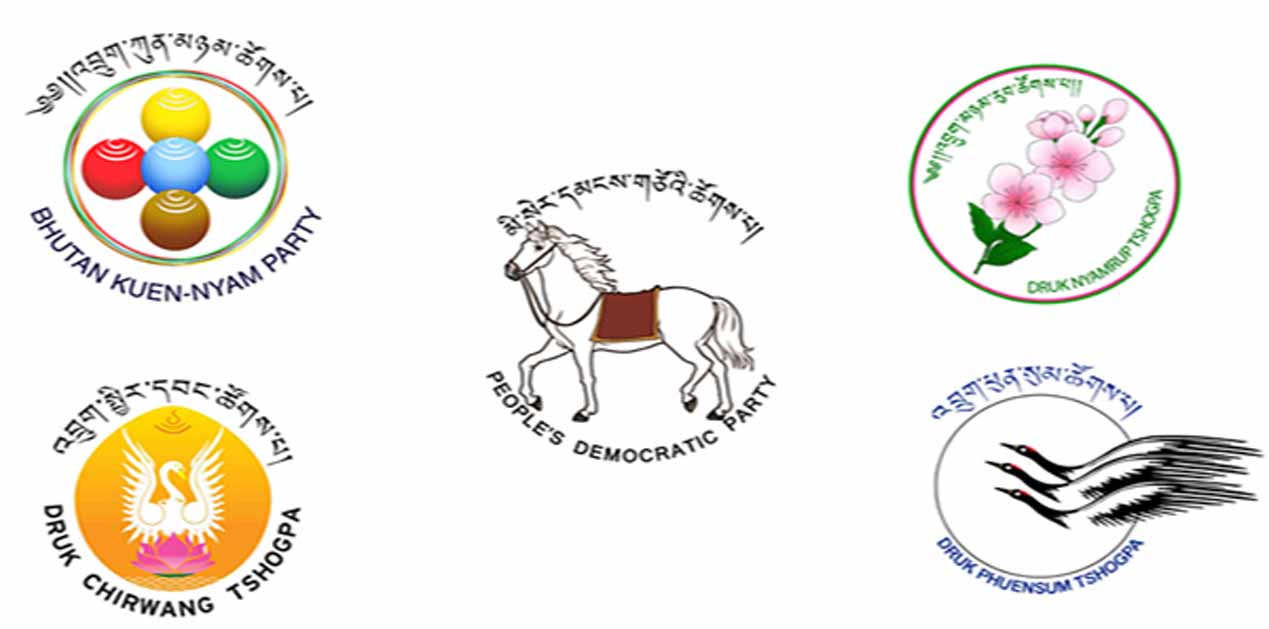It has been a decade since Bhutan started its first innings with procedural democratic reforms. The third round of elections held on October 18, 2018 found its final culmination, with a 71.4 percent voter turnout, and the much anticipated victory of Druk Nyamrup Tshogpa (DNT) which won 30 seats in the National Assembly. The remaining 17 seats were won by Druk Phuenshum Tshogpa (DPT) which will be forming an Opposition.
The third round of elections was not a surprize to some, as patterns in the last two rounds have shown an inclination towards the anti-incumbancy factor. Another reason for the victory of DNT vis-a-vis the veteran DPT are the swing votes from the PDP loyalists. During the September round of First-Past- the- Post (FPTP) System, the DNT had secured the first position with 31.5 percent of total votes, followed closely by DPT with 30.6 percent. The PDP had lost with 27.2 percent. Given that this was a close shave, it can be argued that DNT emerged as the new alternative given the political face-off between DPT and PDP during the election campaigning. They were allegation and counter-allegations by DPT that PDP and DNT would be joining hands to form a coalition in 2018.
However, it is also not an exaggeration to state that the Bhutanese electorate seems to be giving a fair chance to all electoral candidates with DPT winning in 2008, People Democratic Pary winning in 2013 and DNT winning 2018. While much was written about the India factor in Bhutan’s domestic in 2013 elections, it seems that this time Bhutanese citizens voted for development issues rather than overriding foreign policy concerns. The shadow of the Doklam was absent in terms of making domestic political choices. Significantly, given the political weight that DPT carries in domestic politics of Bhutan, it is not surprizing that DPT is one of the chosen parties, which will still sit in the opposition.
While there was not much difference in the manifestoes of the three parties with self-reliance, development, good governance, stability, effective decentralisation, welfare of the people emerging as common themes, DNT marked its own identity as a Centre-Left Party in terms of assuring equitable development and reducing the income gap between have and haves not in the society. Given the intra-regional differences on development and socio-economic issues between East and West Bhutan, DNT was able to reach out to the majority electorates on the promising notion of progressive change. Given the regime change in Bhutan, there are conjectures regarding the consequences it will have on India-Bhutan relations. However, before coming to any conclusions it is important to understand certain important aspects regarding foreign policy making in Bhutan. In this regard, it is appropriate to revisit the National Council Elections, which took place on April 2018.
It is important to understand the role that the National Council plays in Bhutan’s political decision making. The third round of National Council Elections were held on April 2018, with a total voter turn out of 54.3 percent. While in most cases the Upper House is a reflection of the Lower House, in Bhutan’ s case, National Council is a House of Review, which primarily is christened as a non-political body, where it has both legislative and review functions. Out of its total membership of around twenty-five members, twenty members are directly elected from the twenty districts of Bhutan and five members are nominated by the King himself. It is important to note that Article 11 (Section 2) of the Constitution of Bhutan, states that the House will review matters related to “security, sovereignty and the interest of the country.”
This marks the place of the National Council as a powerful power centre, where it can revoke certain decisions which are taken by the National Assembly. A case in point was the rejection of the Motor Vehicles Agreement (MVA) between India, Bhutan, Nepal and Bangladesh in 2016. This serves as an apt reminder that on matters of national interest, security and foreign policy, the National Council holds considerable weight vis-a-vis the National Assembly. While the ruling parties play important roles in issues of national importance and domestic populist debates, critical issue areas relevant to external affairs have to be filtered and passed by the House of Review.
Significantly, a major factor which could shape the policy preferences of the DNT would be the priority it gives to the development paradigm. Given that more than 80 percent of Bhutan’s total imports and exports are to and from India, self reliance has emerged as a significant theme in Bhutan in last few years. This was also one of the major campaigning thrusts for DNT. A major challenge for Bhutan lies in the hydro-power sector. For instance, hydro-power alone contributes to about 30 percent of the total exports. Interestingly while DNT did not flag off hydel-power as its core agenda, it has promised to generate additional 5200 MW through Sankosh, Kuri-Gongri and other projects.
Bhutan’s fragile economic situation is also highlighted by the fact that its external debt stands at Nu 170 billion, where hydro-power loan comprise of around Nu 132 billion. Notably, the DNT which promises to write a Vision 2045 document, will be going beyond the sole focus on hydro-power to other sectors such as agriculture, mining, manufacturing and service. The diversification of actors in these critical areas will be important in terms of raising funds. Significantly, in June 2018, Bhutan received a USD 300,000 grant from the World Bank-led multi-donor trust fund to support its mining sector. Some of these emerging areas, apart from hydro-power on which bilateral cooperation does exist, should be reckoned with. It also needs to be highlighted here that the second phase of power cooperation, which started in 2007 with a promise to generate around 10,000 MW of power, has witnessed road blocks due to economic, social and environmental reasons having ramifications for Bhutan’s own domestic sector. It will therefore be prudent for New Delhi to highlight other facets of development cooperation which exist between India and Bhutan. Moving past the sole focus of hydro-power development will be important in strengthening the strategic partnership.
One of the major challenges for Bhutan in the coming years is its own tryst with destiny as it consolidates its identity as a small-state and defines its international relations. So far, it has exhibited a classic case of small-state diplomacy. One of the primary constraints for a small state is the lack of resources and influence to shape the regional system. In the case of Bhutan, the challenge lies in balancing the China factor, when it comes to dealing with India.
On the security front, whether DNT manages to move beyond the shadow of India-China relations and carves a niche for itself at the international level by defining its identity in a distinct way, will determine whether it raises stakes for regional stakeholders.
(The author is Assistant Professor, Department of International Relations, South Asian University.)
Image Source: http://www.bbs.bt/news/wp-content/uploads/2017/10/Parties-gear-up-for-2018-elections.jpg










Post new comment